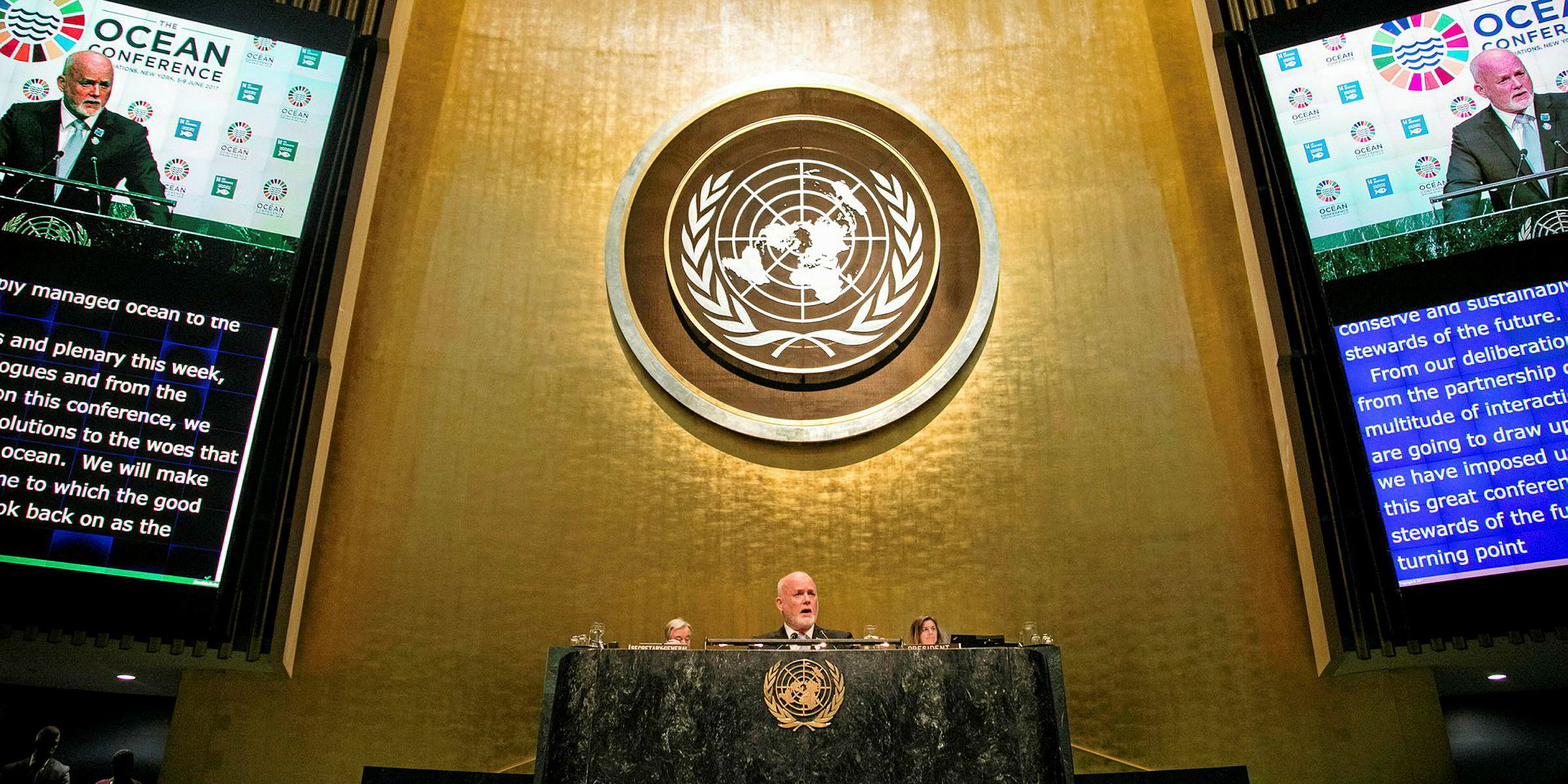A proposal by shipowners to set goals to reduce greenhouse gas emissions is generating a debate over a key question: Are the proposed aspirational objectives enough, or are caps on carbon dioxide (CO2) necessary?
The International Maritime Organization (IMO)’s Marine Environment Protection Committee is gearing up to hold the first in a series of meetings aimed at approving an initial greenhouse gas emissions strategy by next year.
Four shipping trade groups — the International Chamber of Shipping (ICS), Bimco, Intercargo and Intertanko — are pursuing a proposal that would see the IMO adopt non-binding goals to reduce the industry’s CO2 emissions.
They are calling for IMO targets that aim to bring emissions below 2008 levels as a first step, followed by an as-yet-decided 2050 target.
ICS policy and external relations director Simon Bennett tells TradeWinds that the “aspirational objectives” language mirrors the regime in the aviation industry. And the proposal shows that shipping takes the same level of responsibility as governments under the Paris climate agreement, after criticism that the industry had received a “pass” under the accord.
But he says the industry wants to avoid a binding cap, as developing IMO member states are concerned about hampering trade growth.
“If the world economy expands faster than we anticipate and faster than we can keep up reducing emissions through technical measures, I don’t think anyone’s expecting that the trade should stop as a result,” Bennett told TradeWinds on the sidelines of the United Nations Ocean Conference in New York.
But environmental groups keen to see an IMO strategy that will be effective in reducing shipping’s contribution to climate change say aspirations will not do the job.
Faig Abbasov, aviation & shipping officer at clean-transport campaign group Transport & Environment, says setting non-binding objectives leads to a slippery slope, since any enforcement measures would be similarly aspirational.
“It suggests to those who are going to order ships, which they will use for 30 years from now, that this... is not something serious, it’s not something firm,” Abbasov said. “That means that you can continue with business as usual.”
Bill Hemmings, Transport & Environment’s aviation & shipping director, acknowledges that it will be some time before alternative fuels are identified to decarbonise shipping. But he says scoring quick hits is better than waiting, and the IMO can act now on other measures, such as introducing a speed-management regime.
“They want to spend seven years looking at data and gazing at their navel and working out some plan,” Hemmings said of the IMO’s 2016 roadmap that seeks to have a permanent strategy by 2023. “We don’t have seven years.”




